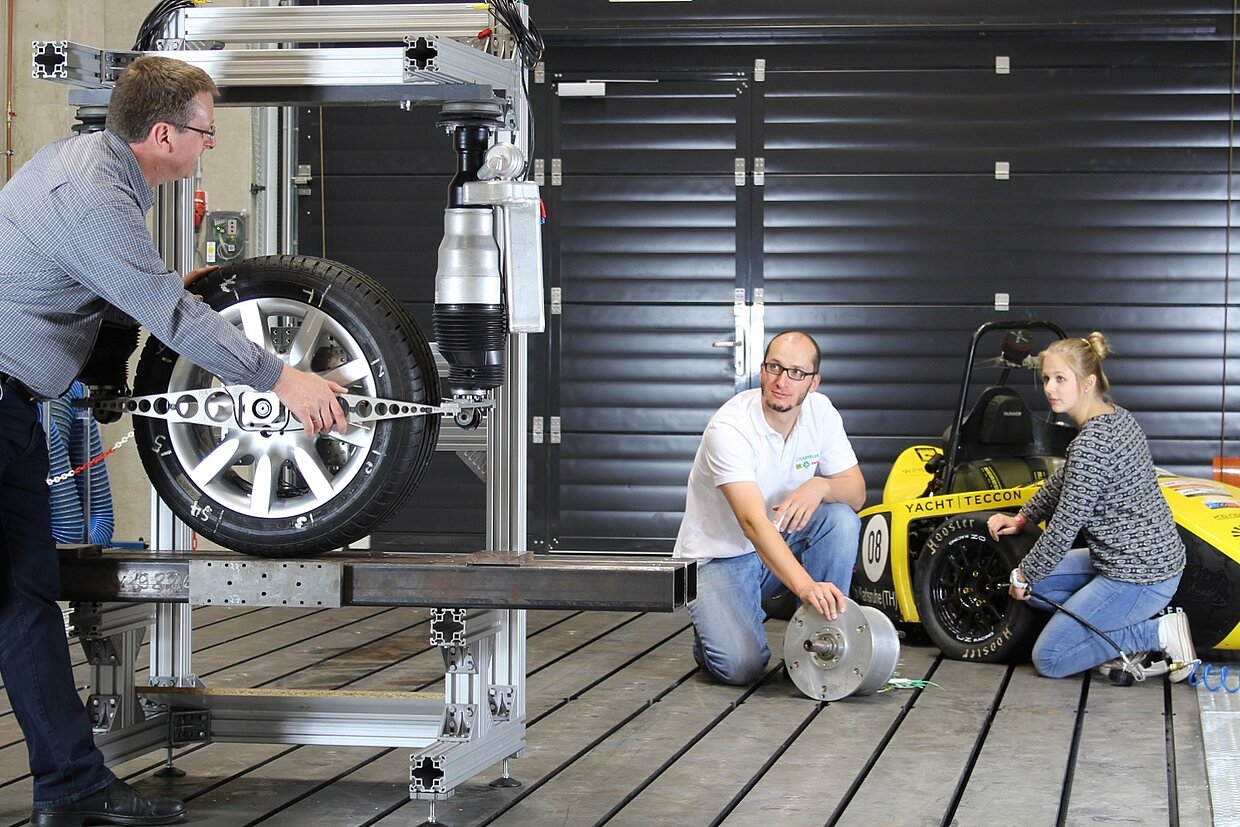
The aim of the project is complete replacement of conventional power steering by individually selected wheel drive in combination with an intelligent control and a fitting steering geometry. Power steering (servo steering) in today’s e-vehicles is still typically generated by conventional electromechanical or electrohydraulic drives. By using individually selected wheel drives and an intelligent control concept as well as the right steering geometry, conventional power steering can be completely abolished.

The approach taken in e²-Lenk clearly goes beyond previous concepts of assistance for power steering. The forces of electric drive units are also utilized to influence the lateral dynamics of the vehicle and its steering behavior. Thus the power steering assistance is functionally integrated in the power train. An essential technical challenge is presented by the suitable design of the steering geometry, which, on the one hand, should allow for turning and, on the other hand, should not make the vehicle too sensitive to interferences and thus becoming unstable. Another challenge exists in the implementation of an intelligent control or actuation concept of the electric drive units. In the project, functional demonstrators are set up which allow for a validation and optimization of the concepts. The implementation is also realized in the talent field. With the help of students participating in the Formula Student Group KA-Racing, the intelligent power steering will be integrated into the Formula Student E-Race Car.
The novel power steering concept investigated in e²-Lenk as well as its integration in the power train has the benefit of reducing the number of system components for e-vehicles while simultaneously optimizing the energy efficiency. This results in efficiency improvements and a greater cost-benefit potential.
Group coordinator
Project period
Project partners
Funded by the Federal Ministry of Education and Research (BMBF)